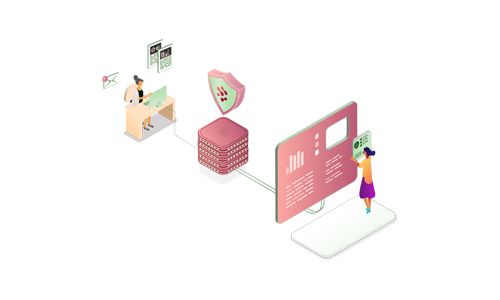Will the current Tariff posturing lead to negative consequences for brand infringement?
Major changes in global trade tariffs are expected to heighten the impact of counterfeiting and shift the focus of the authorities from policing tariff evasion to the actions of the bad actors. Brands need to be ever more vigilant – and Com Laude can help.
The last few weeks has seen an escalation of words and actions in respect to tariffs being placed on the import of foreign goods across the world. The figures have made headlines news and have led to unstable global financial markets, but it is not just the economy that has brand holders worried. The imposition of new tariffs in this global trade war has far-reaching consequences, one of which is likely to be the unintended rise in counterfeiting and brand infringement for a number of reasons.
Higher Costs Drive Demand and Supply with Counterfeits
A rise in tariffs increases the cost of imported goods, which often leads to higher prices for consumers, especially where other economic pressures, such as the rising cost of utilities means profit margins are being squeezed. When the price of legitimate products rises, consumers are more likely to turn to cheaper alternatives such as substitute goods, unbranded items but more worryingly, counterfeits. Economic theory and analysis has proved that one of the contributing factors in the demand, and supply of counterfeits is when the price of authentic goods soars, as brand infringers can provide low-cost substitutes that appeal to budget-conscious buyers. This trend is particularly evident in industries like apparel, electronics, and perhaps most concerning, pharmaceuticals.
Disruption of Legitimate Supply Chains and International Economic Cooperation
Many firms will be forced to seek cheaper alternative suppliers rather than absorb the higher costs caused by new tariffs, which in turn can disrupt established supply chains. For businesses that cannot afford these adjustments, some may resort to sourcing from less reputable manufacturers who produce counterfeit goods. Additionally, manufacturers affected by tariffs themselves may pivot to creating products that are either wholly counterfeit or include fake parts or ingredients to maintain profitability.
Companies that previously worked with trusted suppliers may lose control over their supply chains, making it easier for counterfeit goods to infiltrate markets. This also puts stress on international cooperation and economic and trade agreements. A disagreement over import tariffs is hardly likely to provide a collaborative backdrop to large-scale anti-counterfeit operations on exports for instance. Governments become powerless as they themselves face resource constraints as they allocate more effort (people and funding) toward the enforcement of the import tariffs rather than combatting counterfeiting. This shift in priorities creates an environment where counterfeiters can operate with less oversight.
The Ever-Changing Business Model of the Counterfeiters
The trade disagreements and tariff tit-for-tats brings few winners, but you can be sure that the counterfeiters will be adapting their business models quickly to take advantage of the situation and the potential spiralling prices caused by new import duties. Consumer look further afield, both offline and online to seek alternatives and substitutes, especially on marketplace websites where the anonymity of online transactions often makes it hard for brand owners and the authorities to trace the sellers and put a stop to their nefarious activities. They counterfeiters innovate, creating new ways to avoid detection in getting their often inferior and sometimes dangerous goods in the hands of the buyers.
The Knock-On Effect of a Growth in Counterfeit
Some consumers may feel that they have beaten the system, avoiding paying higher prices for goods impacted by import tariffs but the knock-on effects of a sharp rise in counterfeits can be felt across communities and economies. These include:
- Further financial impact on firms already struggling with higher tariffs on their goods and services which may lead to forced cost cutting including job losses;
- Health and Safety Risks especially where the fake goods related to pharmaceuticals and medicines which puts pressure on existing healthcare resources;
- Loss of tax revenues from legitimate sales which may leads to vital social services being cut in the future by Governments and local authorities; and
- An increase on other organised criminal activities, funded by the boost in revenues from counterfeiting, including the supply of drugs, illegal weapons, and human trafficking.
Mitigating the Risks, avoiding Double Jeopardy
Brand holders cannot afford to simply stand on the sidelines and watch the financial, reputational and climatical implications of a trade war play out. Whilst the current cross-border robust discussions create an environment of uncertainty and doubt, organisations have to continue to focus on protecting their brand, now more so than ever. Whilst cost reduction measure may be being considered, now is the time to ensure the monitoring tools and an enforcement strategy is in place, ready to detect and disrupt the illicit trade in counterfeits.
This may mean enhanced monitoring of infringing domain names, scanning of marketplaces for counterfeits, or issues takedown requests focused on social media users promoting fake goods. Without proactive steps, the economic and social costs of counterfeiting will continue to rise alongside escalating trade tensions.
Be Part of the Solution not the Problem
Whilst Governments still have a major part to play in preventing counterfeits entering the legitimate supply chain and markets, in times of economic turmoil it is also the job of the brand holder to reassess their approach and ensure their strategy focuses on protecting their revenues and their reputations. Com Laude has over two decades of experience in helping global brands identify bad actors, including counterfeiters, who are intent on damaging their valuable intellectual property. One of our brand protection experts can provide an overview of the risks that your brand may be facing today, and the actions that can mitigate that threat to revenues and reputation.

The Mysterious Case of the Scotsman, the Ginger Drink, and the Didgeridoo
The first of a series of unique cases showing how complex and intriguing domain name disputes can be.

Com Laude Watch and Enforcement
We help our clients identify, assess, and address registration of infringing domain names.